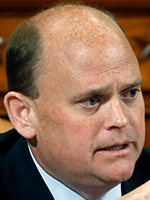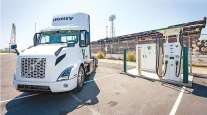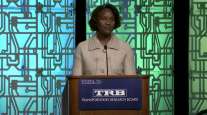Senior Reporter
Congress’ ‘Problem Solvers’ Tackle Infrastructure Policy

[Stay on top of transportation news: Get TTNews in your inbox.]
Although President Donald Trump and Congressional Democrats hit the pause button on infrastructure policy discussions earlier this year, a bipartisan group of policymakers opted to press ahead with a plan of action of its own.
In a recent broad policy proposal by the self-described Problem Solvers Caucus on Capitol Hill, the group aims to equip the leadership from both parties with a roadmap for advancing a comprehensive infrastructure measure.
Acknowledging analysts’ conclusions that the country’s infrastructure repair needs exceed well beyond the trillion-dollar mark, and the funding methodology for surface transportation nationally is unsustainable, the caucus outlined various funding reforms.
In its “Rebuilding America’s Infrastructure” report, the group recommended incentivizing states to adopt legislation designed to enable public-private partnerships. P3s, the caucus argued, might be useful to repair or build large projects in certain regions of the country.
The group also called for indexing fuel taxes and proceeding with either an immediate or phased-in modernization of the user fee on gasoline.
Investing in our nation's infrastructure shouldn't be a partisan issue — it's just common sense.
Rep. Josh Gottheimer (D-N.J.), co-chairman of the Problem Solvers Caucus
“The user fee on gasoline is not indexed to factors including fuel economy standards, construction costs, or inflation, resulting in a user fee with a purchasing power that is worth 40% less than its value in 1993,” according to the report. “Technological innovations and federal fuel economy regulations have made vehicles far more efficient, resulting in further reductions in revenue for the [Highway Trust Fund].”
A vehicle miles traveled fee was proposed for automated vehicles, as was an expansion of loan opportunities for state and local agencies. An annual registration fee on fully electric and hybrid electric vehicles also was recommended, as well as designating a liaison for rural affairs within federal agencies, such as the Department of Transportation.
Additionally, the group called for streamlining the environmental review process, assisting states with project delivery and financing tools and ensuring infrastructure systems are protected from cyber attacks.
“Investing in our nation’s infrastructure shouldn’t be a partisan issue — it’s just common sense,” said caucus co-chairman Rep. Josh Gottheimer (D-N.J.) “It’s time to get a better [return on investment] in New Jersey for our existing tax dollars.”
“We all know our infrastructure is crumbling, and we care about the people who feel the impact of our crumbling roads, bridges, ports and utilities every day. Congress must come together to act on this issue now, not later,” added caucus co-chairman Rep. Tom Reed, a Republican from New York.

Reed
The bipartisan caucus consists of 44 members, split between Democrats and Republicans.
“Fixing our crumbling roads and water infrastructure is not a partisan issue –– it’s something we should be able to come together across party lines to address,” said Rep. Elissa Slotkin (D-Mich.), another caucus member.
The congressional committees of jurisdiction have yet to announce consideration of infrastructure legislation or whether they intend to incorporate the caucus’ input.
On May 22, infrastructure policy discussions between Trump and top Democrats collapsed due to the president’s animus toward congressional investigations into his 2016 campaign.
In April, Trump and Democrats announced an agreement on an infrastructure plan for $2 trillion. Republicans, who are in the majority in the U.S. Senate, have not unveiled a plan. Last year, a 10-year, $1.5 trillion infrastructure plan from the White House was not considered by the GOP-led Congress.
Meanwhile, key stakeholders express support for increasing federal fuel taxes as a way of ensuring the long-term solvency of the Highway Trust Fund, an account that helps states with big-ticket projects.
More than two-thirds of states in recent years have increased their fuel taxes, citing federal unreliability on infrastructure funding. The federal tax on diesel has been 24.4 cents per gallon, while the tax on gas has held at 18.4 cents per gallon since 1993.





